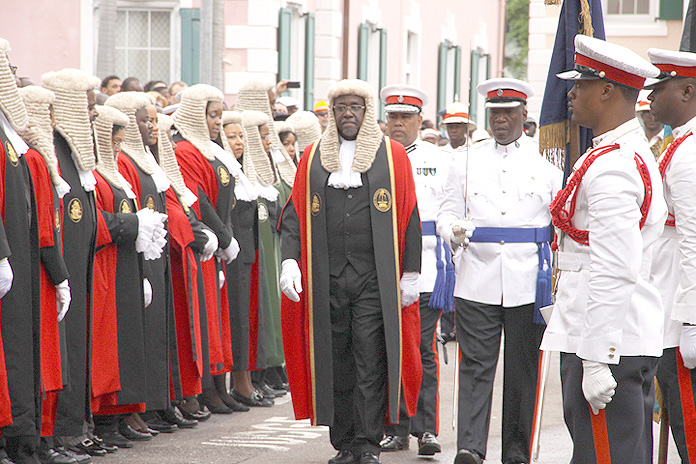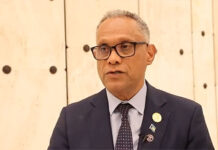
NASSAU, The Bahamas – In his inaugural speech as Chief Justice, Sir Hartman Longley called for performance standards to weed out those who fall short, and continued training and education for judges and other members of the judiciary. The Honourable Chief Justice addressed a special sitting of the Supreme Court to officially open the Legal Year, Wednesday, January 13, 2016.
In this regard, the Chief Justice announced plans to hold a meeting with Attorney General the Hon. Allyson-Maynard Gibson and the President of the Court of Appeal Dame Anita to statutorily advance the Judicial Education Institute.
“Draft Bills (one of which was drafted by the President) have sat dormant for years. Now is the time to bring them to the fore so as to give statutory structure to and ongoing training and education program for judges, magistrates and other judicial officers,” said the Chief Justice.
“My hope is that the Government of The Bahamas will embrace this much needed measure and provide the necessary funding to ensure its success. So far we have been able to draw on foreign sources of funding for some training and no doubt we will have to continue to rely on external sources of funding where possible. But we do so with the clear intent of ensuring that all judicial officers receive the necessary training and education to do their jobs competently.
Continuing judicial education and training must be a major plank on our agenda in advancing and modernizing the judiciary.”
He remarked that members of the judiciary recently completed a Judgment Writing course, which was sponsored by the National Center for States Courts and the US Embassy. The objective of the course was to improve written and oral judgments.
“It is hoped that this is one of those areas of education that will produce tangible results to the benefit of all in short order and help to achieve the new time frames. In particular with improved writing and oral skills there will be more timely delivery of judgments — both written and oral — thus cutting down this area of delay that impacts the quality of justice.”
Moreover, in an effort to make the judiciary more versatile and responsive to the needs of the public, the Chief Justice announced changes that are on the drawing board. As of March 1, the civil court will be strengthened with the additions of Justices Charles and Winder who will move from crime to civil, and Justices Milton Evans and Fraser will move to crime.
To facilitate the transitions, an in-house orientation and training program will be held in February for the judges who are moving to crime.









